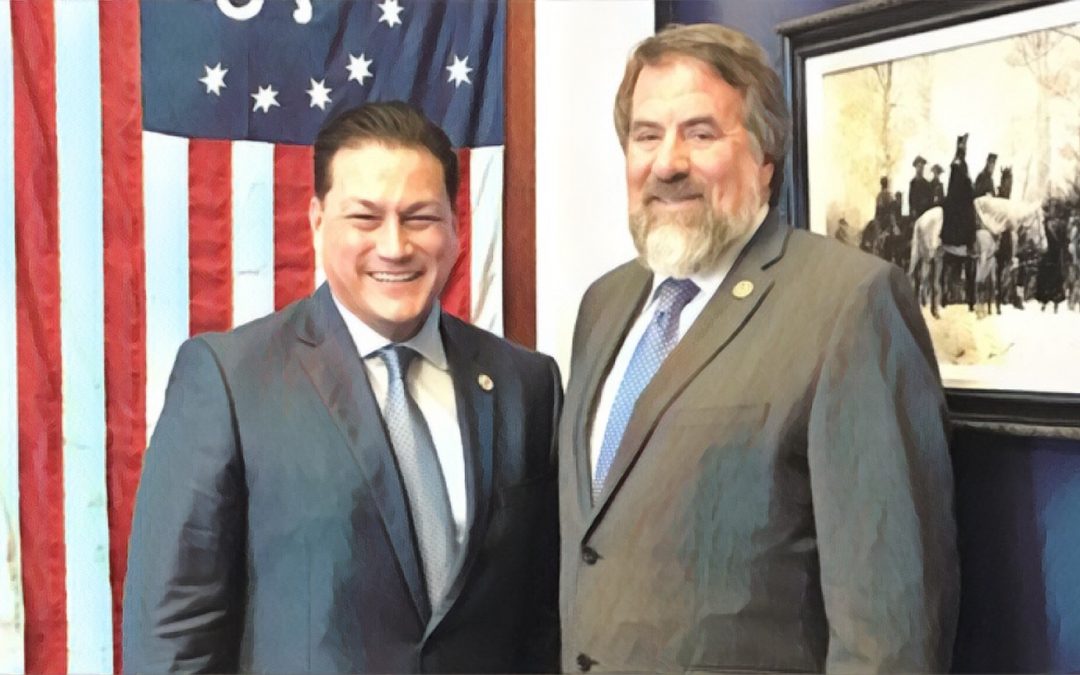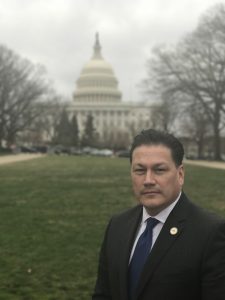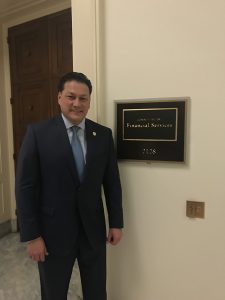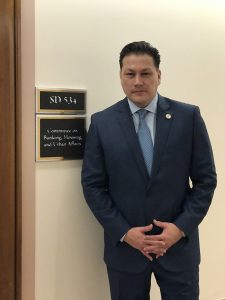Last week, I spent several days on Capitol Hill to meet with lawmakers and staff on key committees. While there, I discussed the growing financial services industry and why federal law and regulation is holding it back. I met with members of the House Financial Services Committee, the Senate Banking Committee, and Appropriators in both houses of Congress. I also met with members who are deeply tied to Indian Country and Native American policy, including Representative Markwayne Mullin (R-OK), who was the head of President Trump’s Native American Coalition, and Senator Steve Daines (R-MT), a member of the Senate Committee on Indian Affairs.
Our meetings were incredibly productive, and I hope they will lay the groundwork for strengthening tribally-owned financial services providers. Tribal financial services, and specifically online lending, are growing sectors in the e-commerce industry for our people, but one that remains largely untapped due to burdensome and undue government regulation, particularly on our sovereign tribes. Though there’s still work to be done, we are making clear progress towards our goal of a robust presence for tribes and tribal entities in the financial services sector.
Among our top concerns is the treatment of tribes and tribal entities under the Consumer Financial Protection Bureau’s (CFPB) civil investigative demands (CIDs) authority. Even though these entities have sovereign status, a federal court has ruled that tribes are subject to the CFPB’s authority to issue CIDs. Congress would have to act to clarify tribes and tribal entities’ status with respect to the CFPB.
As you may know, the CFPB is under intense scrutiny from Congress as it seeks to unwind some of the burdens the office and its authorizing legislation, the Dodd-Frank Act, has created not just for tribal lending entities but for smaller and community financial institutions as well. Chairman of the Financial Services Committee Jeb Hensarling (R-TX) is expected to soon reintroduce the Financial CHOICE Act, which would rollback several Dodd-Frank provisions and curtail some of the authority the CFPB currently has. The legislation passed the House of Representatives in the last Congress and would represent a significant relaxation of regulations stifling further investment into Native American financial services.
My recent conversations on Capitol Hill make it crystal clear there is broad support in Congress to ensure tribes are able to self-determine their future in the financial services sector and that tribal sovereignty should continue to be honored and upheld. As is the case with so many important initiatives and issues in Indian Country, we have work to do in educating lawmakers and staff about the members of NAFSA, our work, and how current policies are impacting the economic livelihoods of our member tribes. Members of Congress working on these reforms should respect tribal sovereignty while also creating a fair and reasonable regulatory environment.
It’s important for NAFSA members and others who care about tribal sovereignty and finance to know that these meetings are not one-offs; I and our members plan to be a frequent presence on the Hill, both as these important issues are debated and for the foreseeable future.





